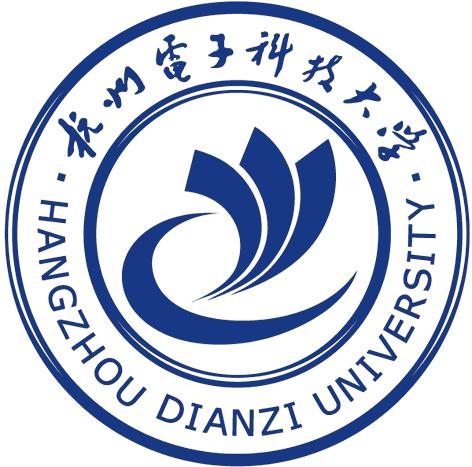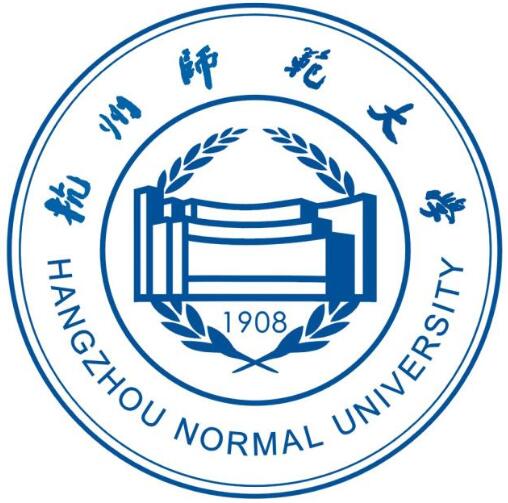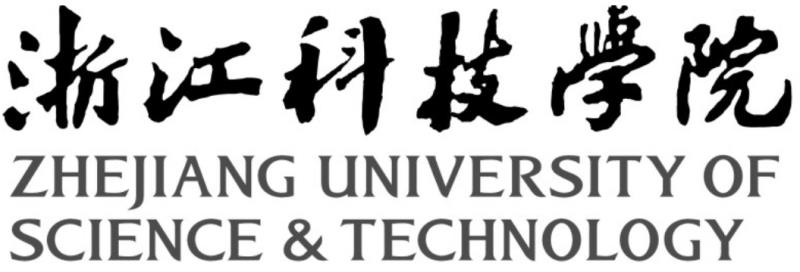a

Program can be downloaded here (updated 28 Dec 2018).
HASE 2019 Program at a Glance 3 to 5 January 2019 Venue: Science Museum (Next to Hangzhou Shujiang Hotel) Hangzhou Dianzi University (Xiasha campus), Hangzhou |
||
|
Regular paper: 20min (including QA) Short paper: 15min (including QA) |
||
|
2, January 2019 (Wednesday) |
||
|
Time |
Event |
Venue |
|
1330-1730 |
Registration & Reception |
Hangzhou Shujiang Hotel |
|
Time |
Event |
Venue |
|
0900-1700 |
Registration & Reception |
Science Museum |
|
0930-1030 |
Tutorial - Part 1 |
Lecture Hall, 2nd floor of Science Museum |
|
1030-1050 |
Coffee Break |
|
|
1050-1150 |
Tutorial - Part 2 |
|
|
1200-1330 |
Lunch |
Hangzhou Shujiang Hotel, 2nd floor |
|
1330-1430 |
Tutorial - Part 3 |
Lecture Hall, 2nd floor of Science Museum |
|
1430-1500 |
Coffee Break |
|
|
1500-1700 |
Workshop on Security issues in Cyber-Physical System (SecCPS) |
|
|
1730-1930 |
Dinner |
Hangzhou Shujiang Hotel, 2nd floor |
|
4, January 2019 (Friday) |
||
|
Time |
Event |
Venue |
|
0815-1700 |
Registration & Reception |
Science Museum |
|
Welcome Address & Photo Taking |
Lecture Hall, 2nd floor of Science Museum |
|
|
0900-1000 |
Keynote One |
|
|
1000-1020 |
Coffee Break |
|
|
1020-1210 |
Session 1: Data Analytics for High Assurance Systems Engineering |
|
|
1210-1330 |
Lunch |
Hangzhou Shujiang Hotel, 2nd floor |
|
1330-1520 |
Session 2: Development and Understanding |
Lecture Hall, 2nd floor of Science Museum |
|
1520-1540 |
Coffee Break |
|
|
1540-1730 |
Session 3: Platforms, Architectures and Design |
|
|
1800-2000 |
Banquet |
Xianghe Hall, Hangzhou Shujiang Hotel, 2nd floor |
|
5, January 2019 (Saturday) |
||
|
Time |
Event |
Venue |
|
0830-1700 |
Registration & Reception |
Science Museum |
|
0900-1000 |
Keynote Two |
Lecture Hall, 2nd floor of Science Museum |
|
1000-1030 |
Coffee Break |
|
|
1030-1200 |
Session 4: System Operation and Behavior |
|
|
1200-1330 |
Lunch |
Hangzhou Shujiang Hotel, 2nd Floor |
|
1330-1450 |
Session 5: Security and Privacy |
Lecture Hall, 2nd floor of Science Museum |
|
1450-1510 |
Coffee Break |
|
|
1510-1710 |
Session 6: Emerging Systems of High Assurance |
|
|
1730-1930 |
Dinner |
Hangzhou Shujiang Hotel, 2nd floor |
HASE 2019 Detailed Program
3 to 5 January 2019
Venue: Science Museum (Next to Hangzhou Shujiang Hotel), Hangzhou Dianzi University (Xiasha campus), Hangzhou
|
Regular paper: 20min (including QA) Short paper: 15min (including QA) |
||
|
2, January 2019 (Wednesday) |
||
|
Time |
Event |
Venue |
|
1330-1730 |
Registration & Reception |
Hangzhou Shujiang Hotel |
|
3, January 2019 (Thursday) |
||
|
Time |
Event |
Venue |
|
0900-1700 |
Registration & Reception |
Science Museum |
|
0930-1030 |
Tutorial: Research Methodology on Pursuing Impact-Driven Research – Part 1 Speaker: Prof. Tao Xie, University of Illinois at Urbana-Champaign, USA |
Lecture Hall, 2nd floor of Science Museum |
|
1030-1050 |
Coffee Break |
|
|
1050-1150 |
Tutorial: Research Methodology on Pursuing Impact-Driven Research – Part 2 Speaker: Prof. Tao Xie, University of Illinois at Urbana-Champaign, USA |
|
|
1200-1330 |
Lunch |
Hangzhou Shujiang Hotel, 2nd floor |
|
1330-1430 |
Tutorial: Research Methodology on Pursuing Impact-Driven Research – Part 3 Speaker: Prof. Tao Xie, University of Illinois at Urbana-Champaign, USA |
Lecture Hall, 2nd floor of Science Museum |
|
1430-1500 |
Coffee Break |
|
|
1500-1700 |
Workshop on Security issues in Cyber-Physical System(SecCPS) Chair: Congfeng Jiang, Hangzhou Dianzi University, China Ø Designing Safe and Secure Mixed Traffic Systems Giedre Sabaliauskaite, Lin Shen Liew, Fengjun Zhou and Jin Cui Ø Modelica-Supported Attack Impact Evaluation in Cyber Physical Energy System Kaikai Pan, Digvijay Gusain and Peter Palensky Ø Asymmetric key-based secure ECU replacement without PKI Ryo Kurachi Ø Vulnerability Analysis of an Automotive Infotainment System’s WIFI Capability Edwin Franco Myloth Josephlal and Sridhar Adepu Ø Attack Defense Trees with Sequential Conjunction Jeremy W. Bryans, Hoang Nga Nguyen and Siraj A. Shaikh |
|
|
1730-1930 |
Dinner |
Hangzhou Shujiang Hotel, 2nd floor |
|
4, January 2019 (Friday) |
||
|
Time |
Event |
Venue |
|
0815-1700 |
Registration & Reception |
Science Museum |
|
0840-0900 |
Welcome Address & Photo Taking Session Chair: Wanzeng Kong, Hangzhou Dianzi University, China Ø Welcome speech from local organizer,Prof. Qing Wu,Vice President of Hangzhou Dianzi University Ø Welcome speech from HASE2019 general chair,Prof. Liguo Huang, Southern Methodist University Ø Message from program committee, Prof. Dongjin Yu, Hangzhou Dianzi University Ø Group photo taking |
Lecture Hall, 2nd floor of Science Museum |
|
0900-1000 |
Keynote One: On Landing Reinforcement Learning in Real-World Applications Speaker: Dr. Yang Yu, Nanjing University, China Chair: Haiyang Hu, Hangzhou Dianzi University, China |
|
|
1000-1020 |
Coffee Break |
|
|
1020-1210 |
Session 1: Data Analytics for High Assurance Systems Engineering Session Chair: Mingyue Jiang, Zhejiang Sci-Tech University Ø A Lightweight Framework for Regex Verification Xiao Liu, Yufei Jiang and Dinghao Wu Ø Towards an Efficient Cyber-Physical System for First-mile Taxi Transit in Urban Complex Junjie Wang, Peng Xu, Jinyang Li, Xiaoshan Sun, Wenchong Tian, Jie Ling, Wei Zheng and Hengchang Liu Ø Quantitative Validation of Formal Domain Models Alexei Iliasov, Alexander Romanovsky and Linas Laibinis Ø Mining Accompanying Passing-Vehicles to Discover Suspected Gangs (Short) Zhihao Wei, Jianyuan Li and Wanqing Li Ø Real-time anomaly detection method for space imager streaming data based on HTM algorithm (Short) Lei Song, Haoran Liang and Taisheng Zheng Ø The Rotate Stress of Steam Turbine Prediction Method based on Stacking Ensemble Learning (Short) Haoran Liang, Lei Song and Xuzhi Li |
|
|
1210-1330 |
Lunch |
Hangzhou Shujiang Hotel, 2nd floor |
|
1330-1520 |
Session 2: Development and Understanding Session Chair: Elena Troubitsyna, KTH - Royal Institute of Technology Ø Air-Ground System Wide Information Management to Achieve Safe Flight Operation Xiaodong Lu, Kazuyuki Morioka, Tadashi Koga and Yasuto Sumiya Ø Parallel Verification of Software Architecture Design Nacha Chondamrongkul, Jing Sun, Bingyang Wei and Ian Warren Ø Multi-Layered Safety Architecture of Autonomous Systems: Formalising Coordination Perspective Inna Vistbakka, Elena Troubitsyna and Amin Majd Ø Isochronous Execution Models for High-Assurance Real-Time Systems Bader Alahmad and Sathish Gopalakrishnan Ø Engineering Functional Safety Requirements for Automotive Systems: A Cyber-Physical-Social Approach Mohamad Gharib, Paolo Lollini, Andrea Ceccarelli and Andrea Bondavalli |
Lecture Hall, 2nd floor of Science Museum |
|
1520-1540 |
Coffee Break |
|
|
1540-1730 |
Session 3: Platforms, Architectures and Design Session Chair: Farokh B. Bastani, The University of Texas at Dallas Ø A Framework for Model-based Dependability Analysis of Cyber-Physical Systems Morayo Adedjouma and Nataliya Yakymets Ø A refinement based method for developing distributed protocols Paulius Stankaitis, Alexei Iliasov, Yamine Ait-Ameur, Tsutomu Kobayashi, Fuyuki Ishikawa, and Alexander Romanovsky Ø Identification of multi-core interference Frédéric Boniol, Claire Pagetti and Nathanaël Sensfelder Ø Formalizing Cyber–Physical System Model Transformation via Abstract Interpretation Natasha Jarus, Sahra Sedigh Sarvestani and Ali Hurson Ø Semantically Enhanced Time Series Databases in IoT-Edge-Cloud Infrastructure Shuai Zhang, Wenxi Zeng, I-Ling Yen and Farokh B. Bastani |
|
|
1800-2000 |
Banquet |
Xianghe Hall, Hangzhou Shujiang Hotel, 2nd floor |
|
5, January 2019 (Saturday) |
||
|
Time |
Event |
Venue |
|
0830-1700 |
Registration & Reception |
Science Museum |
|
0900-1000 |
Keynote Two: Intelligent Software Engineering: Synergy between AI and Software Engineering Speaker: Prof. Tao Xie, University of Illinois at Urbana-Champaign, USA Chair: Liguo Huang, Southern Methodist University, USA |
Lecture Hall, 2nd floor of Science Museum |
|
1000-1030 |
Coffee Break |
|
|
1030-1200 |
Session 4: System Operation and Behavior Session Chair: Liming Nie, Zhejiang Sci-Tech University Ø Facilitating Failure Analysis with Software Instrumentation Brad J. Ziegler, Sahra Sedigh Sarvestani and Ali R. Hurson Ø A Framework for Preprocessing Multivariate, Topology-Aware Time Series and Event Data in a Multi-System Environment Andreas Schörgenhumer, Mario Kahlhofer, Peter Chalupar, Paul Grünbacher and Hanspeter Mössenböck Ø Timing Modeling and Analysis for AUTOSAR OS Schedule Tables Rongkun Yan and Jian Guo Ø Interface Injection with AspectC++ in Embedded Systems Ulrich Thomas Gabor, Christoph-Cordt von Egidy and Olaf Spinczyk |
|
|
1200-1330 |
Lunch |
Hangzhou Shujiang Hotel, 2nd floor |
|
1330-1450 |
Session 5: Security and Privacy Session Chair: Dongjing Wang, Hangzhou Dianzi University Ø Study of Trust at Device Level of the Internet of Things Architecture Tunde Akeem Yekini, Fehmi Jaafar and Pavol Zavarsky Ø Private Blockchain Network for IoT Device Firmware Integrity Verification and Update Samip Dhakal, Fehmi Jaafar and Pavol Zavarsky Ø MidSecThings: Assurance Solution for SecuritySmart Homes in IoT Richardson Andrade and Nelson Rosa Ø Research on Cloud Performance Testing Model (Short) XiuRu Li, HongHui Li, Huan Wang, Jie Zhang and ZhouXian Jiang |
Lecture Hall, 2nd floor of Science Museum |
|
1450-1510 |
Coffee Break |
|
|
1510-1710 |
Session 6: Emerging Systems of High Assurance Session Chair: Junjun Zheng, Ritsumeikan University Ø Modeling and Verifying Storm Using CSP Hongyan Zhao, Huibiao Zhu, Yucheng Fang and Lili Xiao Ø Development of a Generic Model for Large-Scale Healthcare Organizations Faisal Alkhaldi and Ali Alouani Ø Modeling and Verifying Spark on YARN Using Process Algebra Jiaqi Yin, Huibiao Zhu, Yuan Fei and Yucheng Fang Ø Security Evaluation of a VM-Based Intrusion-Tolerant System with Pull-Type Patch Management Junjun Zheng, Hiroyuki Okamura and Tadashi Dohi Ø Simulation on grounding fault location of distribution network based on regional parameters (Short) Bo Zhang, Haoming Liu, Jia-Jia Song and Jinbo Zhang Ø RangeLocker: Adaptive Range-Sensitive Lockset Analysis for Precise Dynamic Race Detection Yoshitaka Arahori |
|
|
1730-1930 |
Dinner |
Hangzhou Shujiang Hotel, 2nd floor |




